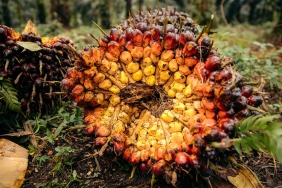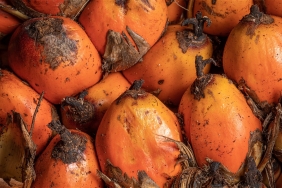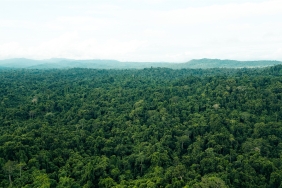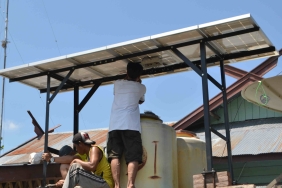INVOLVING FOREST FARMER GROUPS IN CENTRAL KALIMANTAN IN THE IMPLEMENTATION OF A LONG-TERM STRATEGY FOR IMPROVEMENT
As one of the first steps in implementing the Benah Term Strategy, WWF-Indonesia ensures the active involvement of the community, especially forest farmer groups (KTH), who have the mandate to restore forest functions through this scheme. Through a social approach, WWF-Indonesia builds trust, attachment, and awareness of the community towards restoration efforts through the long-term strategy. On July 31, 2025, a meeting was held to identify the needs and priorities of the community, as well as to realign the goals and ideas of the Term Benah with the KTH work plan. This time, the community group involved was KTH Lestari Hutan Katanjung 1 in Kapuas Hulu, Central Kalimantan.
The meeting was warmly and openly welcomed by the KTH members. Damang Udur, as the head of KTH Lestari Hutan Katanjung 1, hopes that this initiative can not only help improve the environment in the oil palm extension area, but also improve the community's economy through local crops such as jengkol, meranti, and karuing in the oil palm monoculture area.
In addition to the meeting, the WW- Indonesia team also directly reviewed the potential development area of the demonstration plot (demplot) of the Benah Term Strategy covering an area of 47 Ha in the KTH Lestari Hutan Katanjung 1 area. The potential development area for the implementation of SJB shows a tendency to decrease soil quality based on the characteristics and physical appearance. This step has been through analysis of several published studies and discussions with stakeholders, which also helped in the preparation of appropriate rehabilitation strategies, ranging from the selection of ground cover plants and shade trees to commodities that can restore ecological quality while providing economic value to the community.
In its implementation, WWF-Indonesia faces a number of challenges. One of them is ensuring effective administrative coordination with the village government as a fundamental step to obtain social and legal legitimacy before formalizing the social contract. Another challenge is to strengthen the collective capacity of farmers, government, academia, civil society, stakeholders, and other key figures in order to step together to support forest restoration efforts through a long-term strategy while managing the area legally, fairly, and sustainably.
Through Permen LHK No. 09/2021 on Social Forestry Management promotes the Benah Term Strategy (SJB) as one of the schemes for resolving and structuring oil palm plantations in forest areas, which is the basis for WWF- Indonesia to encourage the acceleration of the implementation.





